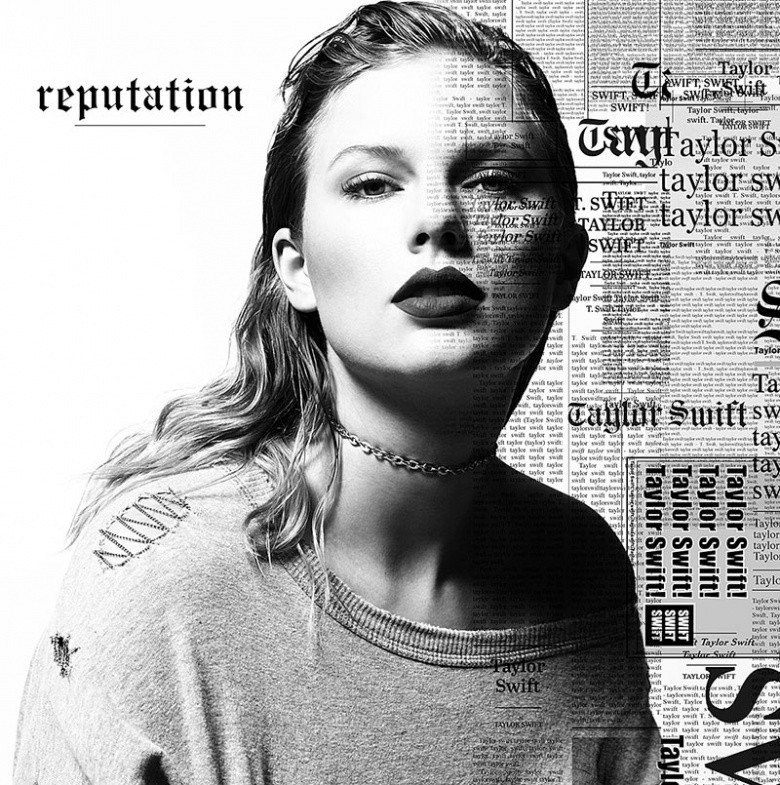Popular Reads
Top Results
Can't find what you're looking for?
View all search resultsPopular Reads
Top Results
Can't find what you're looking for?
View all search resultsAlbum Review: 'Reputation' by Taylor Swift
Reputation is admittedly haphazard, seemingly split into two parts, yet completes the sinister and romantic picture Swift wanted to paint.
Change text size
Gift Premium Articles
to Anyone
O
ne way to reinvent yourself is to shed your old skin. The singer-songwriter Taylor Swift did just that, only to return cooped-up in an iron-clad fortress, summoning belligerence and revelling in its mirth. “The old Taylor can’t come to the phone right now,” she intones, over stuttering synths (“Look What You Made Me Do”), “why? Oh, cause she’s dead.”
But she really isn’t. There’s a moment toward the end of her sixth studio album, Reputation, on the song “This Is Why We Can’t Have Nice Things” that makes the death of her persona seem moot. “And here’s to you/cause forgiveness,” she sings, as the sound of the soft violin threatens a change of heart, “is a nice thing to do.” Then she erupts into a cackle before saying “I can’t even say it with a straight face.” To feign reconciliation is surely better than revenge.
That cackle, that specific way she elasticizes her limited vocals into legitimate cadence — part cheeky, part serious, all-around conversational — has always been a feature of the Taylor Swift of old and new. Take that “click” voice she uses on the song “Blank Space” from her first full-blown pop album 1989 or the laugh she delightfully lets out on “Stay Stay Stay” from her 2012 (and her best) album Red.
Reputation, then, in spite of its distracting rollout, came as a surprise. The weak singles she teased the album with, “Look What You Made Me Do,” or the opener “[…] Ready for It?” were only small hints, even outliers, of an album built on aggressive, often-frustrating electronica.
Diaristic, unrepentant and brimming with humor (and alcohol), Reputation remains a Taylor Swift album. She can command that appeal, or the Streisand-effect level of drama she did (suing a blogger for comparing her to Hitler), making her a singular figure in pop music. I hope that her musical craftsmanship doesn’t get buried in years to come, and Reputation, while not the best Taylor Swift album in my opinion, traffics in her singularity yet again. This time, it’s campy; it’s the sound of a wronged person toying around with EDM-lite beats in the studio.
“Don’t Blame Me,” is exemplary for this and also “End Game,” her posse cut with the rapper Future and the English singer Ed Sheeran. These songs are made out of overtly menacing beats. Cyborg-like stacked vocals feature heavily (“Delicate,” “King of the Heart”).
Produced by two camps, Swedish pop masterminds Max Martin and Shellback, and co-writer Jack Antonoff, both of whom were a huge part of 1989, Reputation is admittedly haphazard, seemingly split into two parts, yet completes the sinister and romantic picture Swift wanted to paint.
I really don’t want to speculate on the target of her pillory or the partner she sings about in this album. It could very well be Kanye, who’s been involved in a suspect drama ever since he flagrantly interrupted her speech at the 2009 MTV Video Music Awards. On the more romantic, sensual side of Reputation lies a romantic partner, who Swift makes fun of in “way you talk” and compliments in “who’s fit like a daydream.” The song “Dress,” for instance, has this nugget that will be eternal in her oeuvre: “Only bought this dress so you can take it off.”
The best songs on this record are the ones where she returns to her more natural songwriting — where songs serve as bottle episodes of Swift’s life. “Getaway Car” is a loose, quietly ambitious song that could soundtrack a John Hughes movie. “Delicate” is a minimal cut, where the lower end of Swift’s vocal register imbues the song with hidden sadness (“My reputation’s never been worse, so / you must like me for me”). I think Antonoff plays a better role for Reputation — especially with his vocal-blending technique — and it’s no wonder that the songs “Call It What You Want” and “Getaway Car” are arrestingly great.
But, like Red’s “Begin Again” or 1989’s “Clean,” the best song on this record closes it. The quiet “New Year’s Day,” again a bottle episode, is built on time-signature-lite piano, containing this timeless line: “Please don’t ever become a stranger whose laugh I could recognize anywhere.”
It’s tender resignation, it’s Taylor Swift opening herself to tomorrow’s promises. Seen this way, I don’t think the old Swift is gone, because how can you tell when someone’s dead? You check for the pulse.











